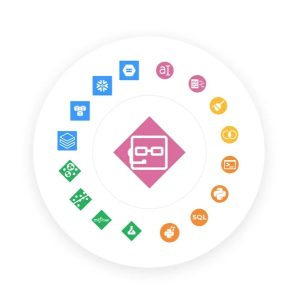Dataiku champions AI agent creation mechanisms
In the apparent landgrab that appears to currently be fixating the enterprise software industry, everybody wants to tell us how smart they are in terms of applying agentic AI services to organisational workflows.
Keen to talk about not just implementation, but also creation is Dataiku.
Self-styling itself as the Universal AI Platform company (did we miss Galactic AI somewhere in between?) the company’s AI Agents with Dataiku service is a set of capabilities designed to create and control AI agents and help pave the way towards AI applications powered by analytics, predictive models and agents.
Dataiku says it has witnessed rapid acceleration of generative AI and AI agent adoption over the past year with many companies integrating AI into their business and data workflows, with multiple projects per customer exceeding 1,000 active use cases.
As companies continue their rush to deploy agents, many create clumsy architectures where agents operate without proper IT control, vary in quality and relevance.
They are sprawled ungoverned across teams, says the company.
Sprawled ungoverned consequences
Dataiku claims to be able to solve this by augmenting its platform with agents as true enterprise systems — grounded in trusted data, embedded in operational workflows, connected to all AI inputs and governed with the same rigor as any business-critical asset.
“AI is raw power — and it’s time for companies to take control. Companies are on the verge of repurposing two decades of enterprise applications built on systems like Snowflake, Workday and SAP with a new layer of AI-native applications. These applications demand a combination of analytics, models and agents that only Dataiku can deliver,” explained Florian Douetteau, co-founder and CEO of Dataiku.
His team suggests that companies are already beginning to feel the pain of agentic initiatives everywhere in organisations without rationalisation or control.
Dataiku supports the central creation of agents with visual agent, a no-code option ideal for non-technical business users and code agent, a full-code option for developers — all available in the same platform, with capabilities to ensure governance.
“As companies mature from exploring to operationalising agents, they’ll quickly realise the need to centralise their creation for proper governance instead of letting them sprawl, continuously optimise their performance instead of letting them stale and fully orchestrate them through existing IT assets instead of raising technical debt. We’re building the required capabilities now in The Universal AI Platform for this emerging market need,” Douetteau added.
Agentic ecosystems pose growing security and governance risks, especially as models evolve rapidly and costs remain difficult to monitor. IT teams are caught between building and maintaining their own guardrails, locking into a single vendor, or allowing open experimentation — each path introducing its own risks to scale and control.
 The company now offers Managed Agent Tools for guaranteeing quality and validation of tools used by agents; GenAI Registry for strategic oversight, with agentic use cases centrally reviewed, business value assessed and risks evaluated; and sign-offs for risk monitoring, with validation workflows off before moving to production.
The company now offers Managed Agent Tools for guaranteeing quality and validation of tools used by agents; GenAI Registry for strategic oversight, with agentic use cases centrally reviewed, business value assessed and risks evaluated; and sign-offs for risk monitoring, with validation workflows off before moving to production.
AI brittle dynamism
AI agents are brittle and dynamic systems: they can generate unexpected errors and their performance can degrade over time. Companies adopting agents need to move to a mindset of continuous optimisation, where agent testing and performance monitoring is routine. Dataiku provides a deep set of capabilities for agent observability and performance monitoring, including:
- Trace Explorer for full transparency into agent decision-making, input/output flows and debugging.
- Quality Guard to evaluate and monitor agent performance continuously with LLM-as-a-judge, evaluation sets and golden datasets.
- Cost Guard for real-time usage tracking, budget enforcement and internal rebilling.
Dataiku also provides Dataiku LLM Mesh to manage model access across all providers, either for proprietary models (OpenAI, Anthropic, Mistral), through cloud services (Bedrock, Azure, Gemini), or via open source models like Llama and DeepSeek through self-hosting.
With an agnostic approach to agentic AI, Dataiku supports all major cloud environments, model providers and data platforms, including Snowflake, Databricks, Microsoft, AWS, Google etc.




